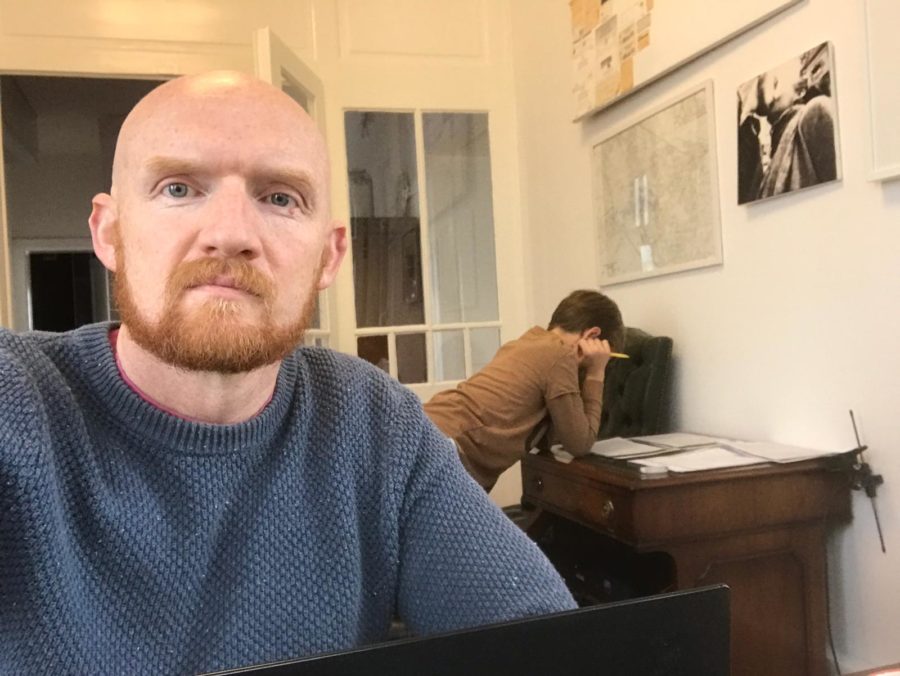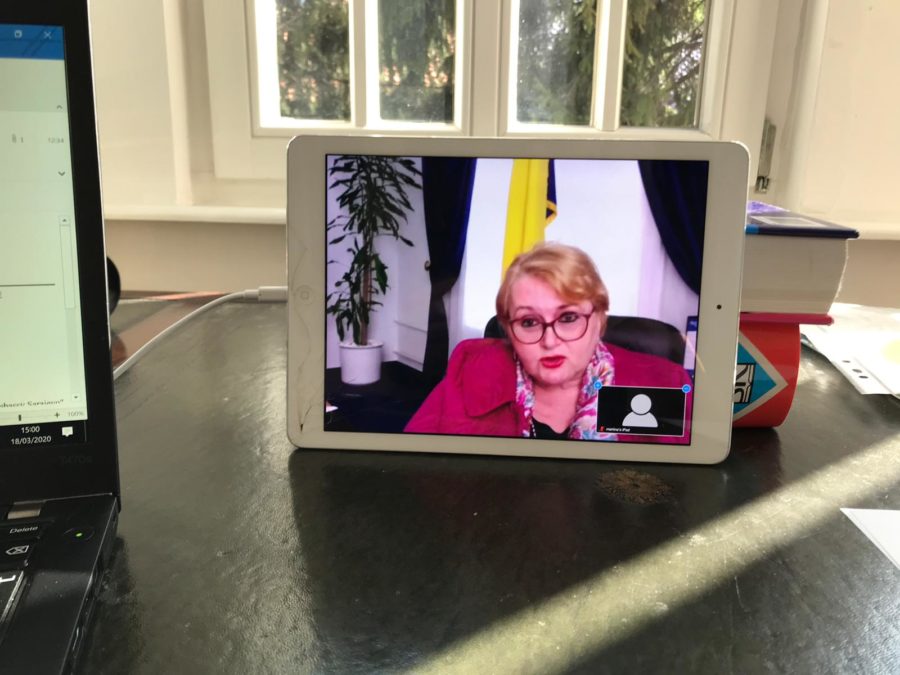25th March 2020
“We can be heroes. Just for one day.”

I sit to write this blog at a table in my home. Like many people across Bosnia and Herzegovina (BiH), and in fact the world, I am currently working from home, because of the COVID-19 pandemic. I am lucky to have the space and technology to do so. There are many who want to work, but are now unable. I hope to show that being an Ambassador is also a job that can be done remotely. And I am really pleased that as the British Embassy we are all doing our part.

Why? Because we collectively face the greatest public health crisis in a generation. It is now abundantly clear that the entire world is affected, or will be so, and that every single one of us has a role to play. On the frontline are our doctors, nurses, emergency service staff, and similar critical workers. Many are continuing to do other essential work, the shop assistants, delivery staff, street cleaners, bakers and miners, on which we depend. Lots of companies have found creative ways to keep serving their customers.
But this is a fight in which all of us can be heroes – and for most, that means staying where we are and helping to prevent the spread of the virus.
It is not often that doing the right thing requires us to sit at home. In every language imaginable, we are being asked to #StayAtHome, to #OstaniDoma, to #FiqueEmCasa. I know this is not easy, with children in home school, or perhaps a role that cannot be done easily away from the office. But staying at home is the single most useful thing that many of us can do. My top tips?
- Keep a routine, with regular breaks and time to switch off
- Keep in touch, with loved ones and colleagues
- Keep a purpose, in work terms, home schooling, or learning a new skill
- Keep moving, even if it’s on the spot jogging or a discovering long-forgotten skipping rope
- Keep aware, but don’t spend too long reading bad news, instead look for the people doing good things
What else is the UK doing in this global struggle? Like other countries, we must first deal with containing and treating the problem at home. Our Prime Minister has announced restrictions on movement, closure of schools, and a collective effort to support our health service so they can focus on saving lives. He has also produced a huge and far-reaching support package, especially for our businesses and employees, a £330bn fiscal boost to offset the major economic fallout to come.
Away from home, and in close coordination with our partners like the US, EU, UN and more, the UK wants to help especially those countries most vulnerable to the impact, and international bodies supporting them, such as the World Health Organisation. We have committed £241mn in UK aid to fund the global effort to combat the outbreak, through UNICEF, Red Cross and others, with £150mn for the IMF’s Catastrophe Containment Relief Trust, to cover debt repayments. We are helping BiH and others through our support and financing of the international financial institutions and UN, and we fully welcome the IMF’s announcement of up to EURO 160 million in funding for BiH and EURO 80 million from the EU (to which we are still contributors).
The UK also wants to help find vaccines, new drugs and therapeutics, utilising our leading research hubs, in partnership with other scientific partners around the world. We provided £40mn to the Coalition for Epidemic Preparedness Innovations (CEPI) to combat the spread of COVID-19. UK scientists are already supporting the global development and testing of eight different vaccine options.
At the same time as we must limit the movement of people, we have to maintain the global movement of goods, parts, and pharmaceuticals. These supply chains, and the exchanges of information that go with them, are critical in getting through the long period ahead.
Part of my particular responsibility as Ambassador is to support British Nationals here in BiH. We keep our travel advice up to date, enabling travellers to return to their families in the UK, while being very clear that everyone in this country must respect and comply with the instructions from authorities.
We have refocused our current technical support to BiH authorities to help with COVID-19 response, especially in communicating to the public – an area I think a huge effort has been made, with some examples of real excellence. And we are continuing as much of our assistance as possible, in areas like digitalisation of business and government work, supporting vulnerable groups, and improving Armed Force of BiH medical facilities. These needs, and the effort to build a better BiH, will only be increased by the current challenges.
There is more we will be able to do, as we all understand better how to manage this incredible, unpredictable challenge. I am afraid that none of this is going to be resolved quickly, but we are here for the long-term. I am pleased that different agencies, crisis centers and governments have cooperated, across the country. I have been impressed by the calm and sensible way people across BiH have responded, and I thank them for the positive and encouraging messages they have been sending. We are in this together. And there is nowhere I and my family would rather be.